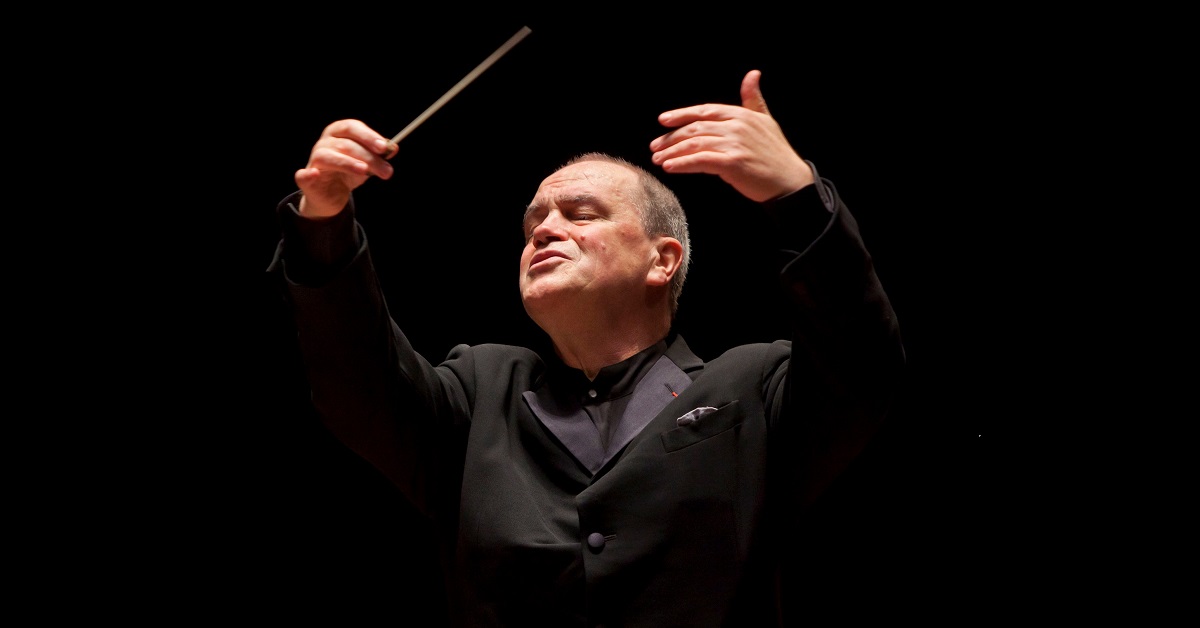What the hell do conductors do anyway?, Pt.2
<< Read Part 1 of this article
A really good conductor should be able to walk up to one of the violinists and adjust his wrist to fix the bowing while explaining to the cymbal player how to get the right sound out of his instrument for this particular part of the piece, singing the oboe line at the same time, and pointing out a tiny change in dynamics near the end of the introduction. All of this is done live, on the spot, on air, in real time. There’s no time to check the score, you just know it.
And if that’s not enough, a professional conductor has to perform these abnormal feats of intellect for numerous pieces written by tens of different composers – thousands of hours of music in total. Most renowned conductors manage to do this without looking at the scores for months, even years. Genius conductor, musician and composer Lorin Maazel used to torture his students with surprise quizzes, expecting them to demonstrate freakishly perfect memory: “Fourth movement, bar 118, what’s the second clarinet doing?” I’m pretty sure the guy was an alien.
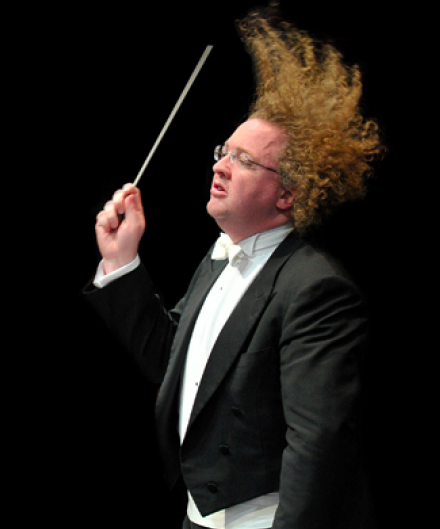 Moving on – balance. Of course, everyone expects of you to give all of your energy as a conductor. This, however, if not executed with perfect precision, may lead to some unwanted consequences. If you lash out into a frenzy of gestures and emotions in front of the orchestra, you’d be making a classical Marxist mistake – forgetting that you’re dealing with human beings. It takes years and years of practice to learn how to give out just the right amount of energy, without making the musicians feel overwhelmed by your demanding body language.
Moving on – balance. Of course, everyone expects of you to give all of your energy as a conductor. This, however, if not executed with perfect precision, may lead to some unwanted consequences. If you lash out into a frenzy of gestures and emotions in front of the orchestra, you’d be making a classical Marxist mistake – forgetting that you’re dealing with human beings. It takes years and years of practice to learn how to give out just the right amount of energy, without making the musicians feel overwhelmed by your demanding body language.
This is a real issue and you can see it in insecure conductors who tend to develop styles that are far too… athletic. They lean, point, urge and wave, like an epileptic person being shot with a machine gun during an earthquake. The reason for this is guilt – the persistent annoying feeling that you need to justify your role. The key is knowing where the line is between instruction and trust, knowing when you have to lead and when it’s best to let the orchestra “take care of it”. Less is more, if you don’t want to press or confuse the musicians (hint: you don’t). Playing the music takes up, understandably, most of their attention. You need to be very careful not to distract the players with overly expressive gestures.
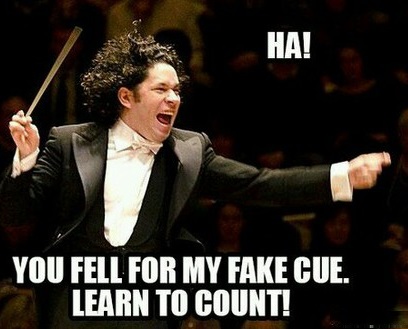 And then there are the small things. The details that define your technique, shape your style and make you a really, really good conductor. Details like being able to prepare yourself and the orchestra for a moment in the score that hasn’t come yet, while they’re still playing, with your hands, while you’re using them to conduct what’s currently happening in the piece, in the last possible moment – not too early, not too late. Carpe diem, seize the day, live in the moment – delightful and enriching piece of advice which will most certainly lead to satisfaction, personal growth and enlightenment. NOT if you’re a conductor.
And then there are the small things. The details that define your technique, shape your style and make you a really, really good conductor. Details like being able to prepare yourself and the orchestra for a moment in the score that hasn’t come yet, while they’re still playing, with your hands, while you’re using them to conduct what’s currently happening in the piece, in the last possible moment – not too early, not too late. Carpe diem, seize the day, live in the moment – delightful and enriching piece of advice which will most certainly lead to satisfaction, personal growth and enlightenment. NOT if you’re a conductor.
Conductors live in the past, the present and the future at the same time. They need to have in mind what’s been going on with the performance so far, what’s happening at the moment and be mentally and physically ready for what’s coming next so they can assure a smooth transition between these elements – first in their minds, then manifest it in the material world through the senses and abilities of the musicians. It’s an almost metaphysical combination of simultaneous examination, expectation and experiencing, culminating in subtle gestures of preparation, incorporated into a comforting and reassuring technique, emanating calamity, but benevolently commanding as well. Here’s a little homework – you try that and let me know how it worked out.
Okay, there’s something we need to do and that is acknowledge the role of the musicians. One reason is I may have unintentionally created the impression that every conductor is a superhuman of some sort. This is not true. There are bad conductors, although you’ve probably never seen them or heard of them. The other reason is I’ve only mentioned the musicians merely as props and instruments that sometimes get intimidated by an energetic frenzy of baton waving. Truth be told, the orchestra can save your life if you’re having a bad day at conducting. A good and experienced group of people who know their craft and their scores well can make an indispensable weapon against incompetence and bad luck, if you’ve taken the time to turn them into your friends. So there.
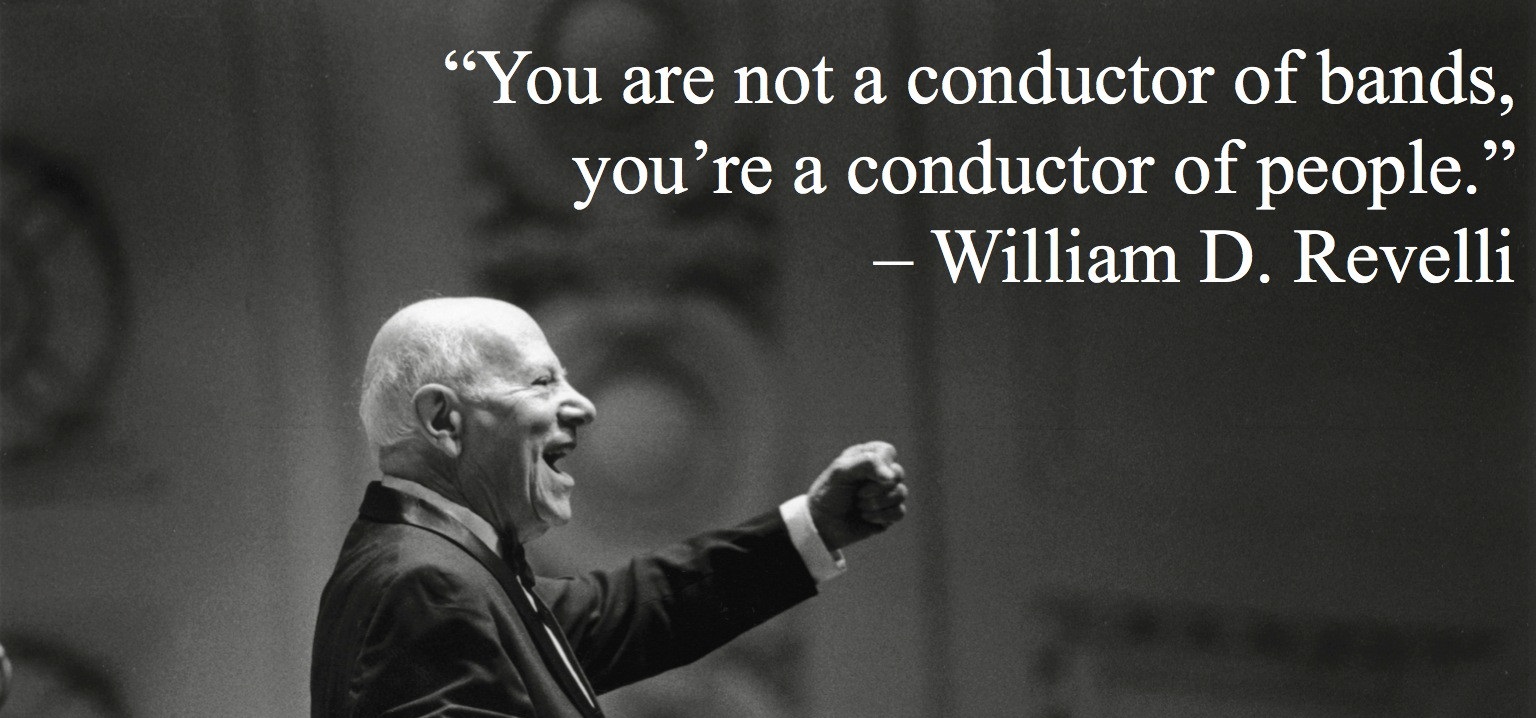
By the way, conductors are not cold calculating machines of music knowledge and measured movement. Brilliant technique will get you places but it’s definitely not everything. After all, music is about emotion. If you can’t convey a feeling, you might as well be replaced by a baton-wielding robot. There have been many examples of conductors with pristine technique whose music ends up being plain and dull. And there have been cases when a conductor who seems to be doing something with his hands that is completely unrelated to the score, presents a brilliant interpretation because they can feel the music.
The conductor will make all the decisions for you. This means he’s there to answer all the questions of all the orchestra and I mean during the playing. Obviously, the poor musicians can’t play, follow and talk at the same time. So their questions come in the form of short glimpses, light nods and decisive looks, combined with barely noticeable changes in posture, subtly announcing their intended actions. It’s the conductor’s job to decode these signals, evaluate the different options in his mind and give a clear but simple instruction to the player. Since the music is still playing, all of this needs to be done instantaneously.
So this is what the conductor does – examine, analyze, form, transform, code, decode, convey, befriend, instruct, balance, reassure, express and feel the music. Make thousands of swift decisions so that a score becomes one beautiful whole piece of real music. All of you skeptics out there, I hope you got the gist of what it means to play the orchestra.
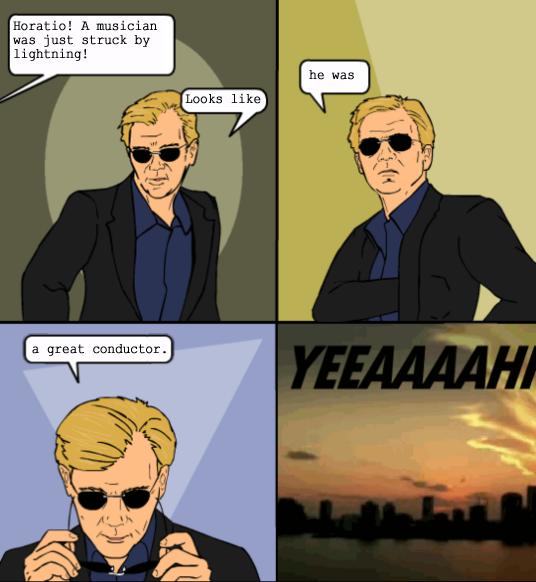
If you enjoyed this article, go to Drooble and sign up for free for more musical goodness.

